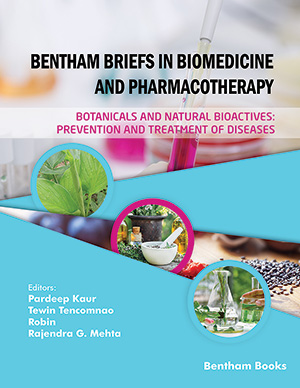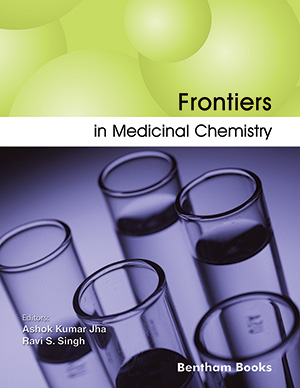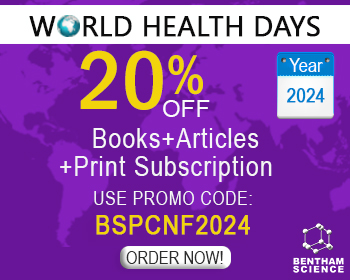Abstract
Despite the efforts in controlling the parasite and infection, and the significant progress achieved in recent years in its treatment, malaria is still prevalent in many regions and out of control in others. The repertoire of alternatives to fight malaria is being expanded, not only by designing new drugs but also by developing improved drug delivery systems able to enhance the antimalarial efficiency of conventional and new drugs. Among the new drugs that have been investigated, several publications report the use of porphyrin derivatives as antimalarials but their efficiency is contradictory. The low activity of porphyrins seems to be associated with low dispersibility and bioavailability. In this respect, Nanotechnology can provide efficient solutions to enhance bioavailability and delivery of conventional and new antimalarials, in order to assure high enough efficiency levels to inactivate the parasite. Thus, in this review we highlight the use of drug delivery systems for conventional and new antimalarials and we propose the encapsulation of porphyrins as a promising alternative for development of anti-malarial formulations.
Keywords: Drug delivery systems, malaria, nanotechnology, Plasmodium falciparum, polymeric particles, porphyrins.
Mini-Reviews in Medicinal Chemistry
Title:Strategies for Development of Antimalarials Based on Encapsulated Porphyrin Derivatives
Volume: 14 Issue: 13
Author(s): Daiana K. Deda, Alexandre Budu, Laura N. Cruz, Koiti Araki and Celia R.S. Garcia
Affiliation:
Keywords: Drug delivery systems, malaria, nanotechnology, Plasmodium falciparum, polymeric particles, porphyrins.
Abstract: Despite the efforts in controlling the parasite and infection, and the significant progress achieved in recent years in its treatment, malaria is still prevalent in many regions and out of control in others. The repertoire of alternatives to fight malaria is being expanded, not only by designing new drugs but also by developing improved drug delivery systems able to enhance the antimalarial efficiency of conventional and new drugs. Among the new drugs that have been investigated, several publications report the use of porphyrin derivatives as antimalarials but their efficiency is contradictory. The low activity of porphyrins seems to be associated with low dispersibility and bioavailability. In this respect, Nanotechnology can provide efficient solutions to enhance bioavailability and delivery of conventional and new antimalarials, in order to assure high enough efficiency levels to inactivate the parasite. Thus, in this review we highlight the use of drug delivery systems for conventional and new antimalarials and we propose the encapsulation of porphyrins as a promising alternative for development of anti-malarial formulations.
Export Options
About this article
Cite this article as:
Deda K. Daiana, Budu Alexandre, Cruz N. Laura, Araki Koiti and Garcia R.S. Celia, Strategies for Development of Antimalarials Based on Encapsulated Porphyrin Derivatives, Mini-Reviews in Medicinal Chemistry 2014; 14 (13) . https://dx.doi.org/10.2174/1389557515666150101094829
| DOI https://dx.doi.org/10.2174/1389557515666150101094829 |
Print ISSN 1389-5575 |
| Publisher Name Bentham Science Publisher |
Online ISSN 1875-5607 |
Call for Papers in Thematic Issues
Bioprospecting of Natural Products as Sources of New Multitarget Therapies
According to the Convention on Biological Diversity, bioprospecting is the exploration of biodiversity and indigenous knowledge to develop commercially valuable products for pharmaceutical and other applications. Bioprospecting involves searching for useful organic compounds in plants, fungi, marine organisms, and microorganisms. Natural products traditionally constituted the primary source of more than ...read more
Computational Frontiers in Medicinal Chemistry
The thematic issue "Computational Frontiers in Medicinal Chemistry" provides a robust platform for delving into state-of-the-art computational methodologies and technologies that significantly propel advancements in medicinal chemistry. This edition seeks to amalgamate top-tier reviews spotlighting the latest trends and breakthroughs in the fusion of computational approaches, including artificial intelligence (AI) ...read more
Natural Products and Dietary Supplements in Alleviation of Metabolic, Cardiovascular, and Neurological Disorders
Metabolic disorders like diabetes, obesity, inflammation, oxidative stress, cancer etc, cardiovascular disorders like angina, myocardial infarction, congestive heart failure etc as well as neurological disorders like Alzheimer?s, Parkinson?s, Epilepsy, Depression, etc are the global burden. They covered the major segment of the diseases and disorders from which the human community ...read more
Natural Products in Drug Discovery
Natural products have always been one of the important ways of drug discovery due to their novel skeleton and diverse functional group characteristics. According to statistics, between 1981 and 2019, the FDA approved a total of 1,394 small molecule drugs for marketing, of which 930 marketed drugs originated from the ...read more
 46
46
- Author Guidelines
- Graphical Abstracts
- Fabricating and Stating False Information
- Research Misconduct
- Post Publication Discussions and Corrections
- Publishing Ethics and Rectitude
- Increase Visibility of Your Article
- Archiving Policies
- Peer Review Workflow
- Order Your Article Before Print
- Promote Your Article
- Manuscript Transfer Facility
- Editorial Policies
- Allegations from Whistleblowers
Related Articles
-
Formation Mechanism of Insulin Fibrils and Structural Aspects of the Insulin Fibrillation Process
Current Protein & Peptide Science Nano-droplet Systems by Surfactant Self-assembly and Applications in the Pharmaceutical Industry
Current Topics in Medicinal Chemistry Natural Marine Anti-inflammatory Products
Mini-Reviews in Medicinal Chemistry Current Hydrogel Solutions for Repairing and Regeneration of Complex Tissues
Current Medicinal Chemistry Editorial (Thematic Issue: Immunophilins, Protein Chemistry and Cell Biology of a Promising New Class of Drug Targets – Part II)
Current Molecular Pharmacology Function Oriented Synthesis: The Design, Synthesis, PKC Binding and Translocation Activity of a New Bryostatin Analog
Current Drug Discovery Technologies Inorganic Nanomedicines and their Labeling for Biological Imaging
Current Topics in Medicinal Chemistry Efficacy and Cardiovascular Safety of Insulins
Current Drug Safety It is All About Proteases: From Drug Delivery to In Vivo Imaging and Photomedicine
Current Medicinal Chemistry Tolfenamic Acid Prevents Amyloid β-induced Olfactory Bulb Dysfunction In Vivo
Current Alzheimer Research Physiology and Pharmacology of the Vanilloid Receptor
Current Neuropharmacology Anti-Inflammatory Responses of Resveratrol
Inflammation & Allergy - Drug Targets (Discontinued) Electrochemical Behavior and Square-Wave Stripping Voltammetric Determination of Roflumilast in Pharmaceutical Dosage Forms
Combinatorial Chemistry & High Throughput Screening The Synthetic Oleanane Triterpenoid HIMOXOL Induces Autophagy in Breast Cancer Cells via ERK1/2 MAPK Pathway and Beclin-1 Up-regulation
Anti-Cancer Agents in Medicinal Chemistry Tritiated Opioid Receptor Ligands as Radiotracers
Current Pharmaceutical Design Glyco-Engineering of Human IgG-Fc to Modulate Biologic Activities
Current Pharmaceutical Biotechnology Bioactive Compounds in Some Culinary Aromatic Herbs and Their Effects on Human Health
Mini-Reviews in Medicinal Chemistry Decision Support System for Lymphoma Classification
Current Medical Imaging Fungal Pathogens Research: Novel and Improved Molecular Approaches for the Discovery of Antifungal Drug Targets
Current Drug Targets Anticancer Activities of New N-hetaryl-2-cyanoacetamide Derivatives Incorporating 4,5,6,7-Tetrahydrobenzo[b]thiophene Moiety
Anti-Cancer Agents in Medicinal Chemistry























